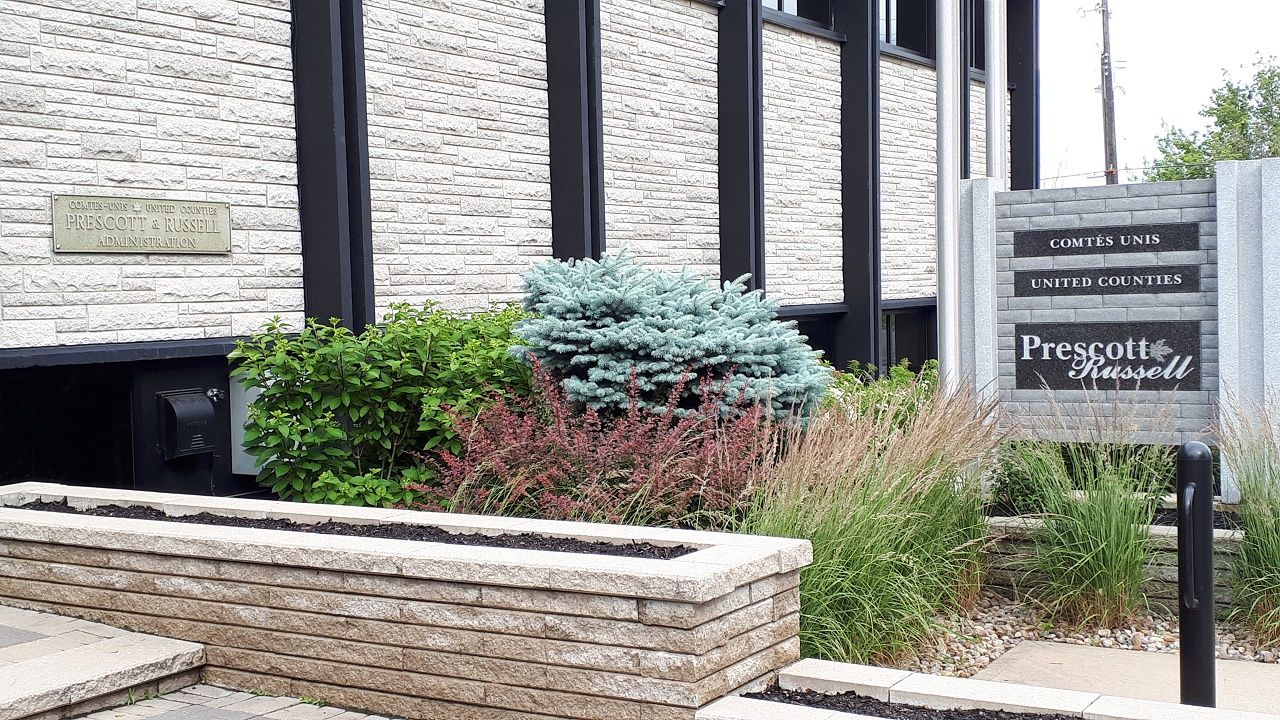The process of approving a new Official Plan (OP) for the United Counties of Prescott and Russell (UCPR) is proceeding, but not without scrutiny from municipal mayors and residents.
A public meeting was held on September 13 for the new OP. Staff explained key points of the OP, and invited members of the public to ask questions.
The OP is the UCPR’s main policy for land use designations across its territory and is reviewed every five years. The current review process began in November 2021 with a public meeting. A survey and consultations with local municipalities and the UCPR Agricultural Advisory Committee followed. Two open houses were held for the public in August 2022, which combined, were attended by nine people.
UCPR Director of Planning and Forestry Louis Prévost explained how the new OP incorporates changes to provincial planning legislation made in the past five years and also conforms to the Provincial Policy Statement (PPS), which is Ontario’s main land use planning policy. The PPS was last updated in 2020.
Prévost explained how the new UCPR Official Plan includes an inventory of the counties’ natural heritage, climate change policies, and new affordable housing policies.
“We all know it is an issue, not just in Prescott-Russell, but across the province, we have added more rigid policies,” Prévost said.
The new OP also includes a redistribution of available industrial development land in Russell Township, new agricultural policies to address diversified agri-food businesses, and updated floodplain mapping.
Following the public meeting, the next step for the Official Plan is the preparation of the final draft document for the UCPR Planning and Forestry Committee to approve. The draft will then go to UCPR council for approval and then be submitted to Minister of Municipal Affairs and Housing Steve Clark for final approval. Once the minister has approved the new Official Plan, it is in effect. Citizens or organizations cannot appeal the approved plan to the Ontario Land Tribunal (OLT), but UCPR council may adopt amendments.
The new OP includes several small parcels of land where the designations have been changed to better conform to surrounding uses on larger parcels of land. These include small, undeveloped rural parcels surrounded by agricultural parcels, or small urban parcels surrounded by larger agricultural parcels.
As an example, Prévost said a small, rural residential subdivision may be redesignated as an agricultural area because all of the surrounding land is used for agriculture. The change will not affect the zoning or settlement of the subdivision.
“What is the objective of changing the rural and agricultural zones?” asked Clarence-Rockland resident Mark Butler. He was one of four members of the public in attendance at the meeting.
Prévost said the changes were identified through a mapping process and based upon a variety of factors including environmental uses, the size of the parcel of land, and soil quality.
Butler asked if municipalities were consulted about changes.
Prévost said the UCPR carried out the exercise on rural land designations, but municipalities were consulted on changes to urban limits.
Clarence-Rockland Mayor Mario Zanth said there are small pockets of land surrounded by larger parcels with different designations in Clarence-Rockland.
Zanth is critical of the provincially guided process of designating land uses. He is uncomfortable that the OP cannot be appealed to the OLT.
“I find it a little authoritarian,” said Zanth.
Russell Township Mayor Pierre Leroux expressed concern about delaying the OP approval process any further because new development lands were shifted to Russell Township, and he does not want to risk the loss of potential tax revenue. He was also concerned about what sort of precedent could be set by delaying approval due to questions about differing uses between small and large parcels of land.
“I’m a bit afraid of opening the door,” Leroux said.
Hawkesbury Mayor Paula Assaly called the province’s approach a bit severe and said it is difficult to change an Official Plan once it is approved.
“It’s not easy to make an Official Plan Amendment,” remarked Assaly.
“We have the right to make amendments,” commented Warden Daniel Lafleur.
Champlain Township Mayor Normand Riopel referred to how small non-agricultural parcels of land could be affected by smells and noise from larger, surrounding parcels of farmland.
In a separate interview with The Review, Prévost also referred to that issue as a justification for giving small non-agricultural parcels the same designation as the larger, surrounding agricultural lands. Otherwise, required setbacks between farming and non-farm properties would cause planning conflicts.
“It’s a plan, and it’s not meant to be all or nothing. There’s no flexibility,” commented Zanth.
Riopel noted all municipal councils had the opportunity to adopt a resolution endorsing the new OP.
Council agreed to allow concerns over the designation of small rural parcels of land in the OP to be addressed at the next meeting of the Planning and Forestry Committee on September 20. Council is set to approve the new Official Plan at its next regular meeting on September 28.
The deadline for the public to submit further written comments on the new UCPR Official Plan is September 19. Comments may be sent by email to [email protected] or by regular mail to the United Counties of Prescott and Russell, 59 Court Street, Box 304, L’Orignal ON, K0B 1K0.


